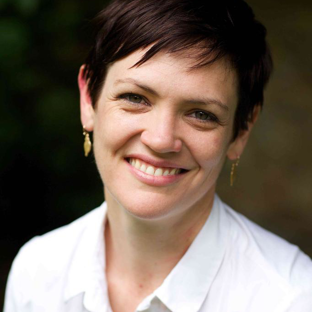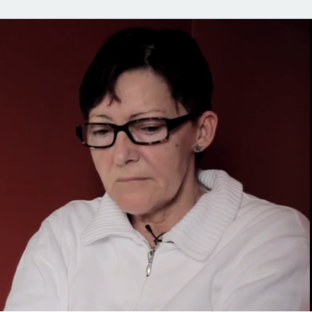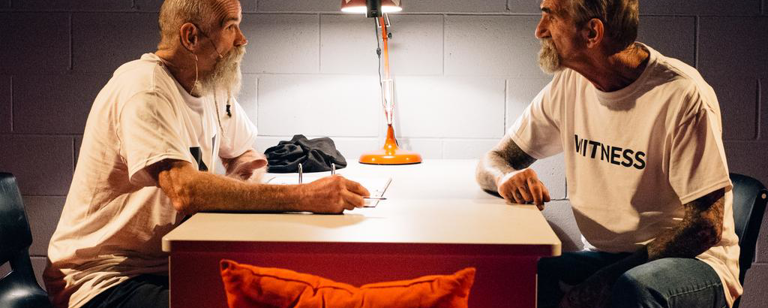‘The question is, am I a monster, or am I myself a victim? And what if I am a victim?’ One hundred and fifty years since Dostoevsky’s masterpiece, Crime and Punishment, we’ll be talking about our enduring obsessions with transgression, retribution and justice. What purpose does punishment play in society? Is punishment good for you? And what is the connection between punishment, justice, catharsis and redemption?
The answers to these questions depend on who you ask. Facilitator Madeleine Morris will be joined by former Pentridge Prison chaplain Peter Norden, female inmate advocate Debbie Kilroy, actor Uncle Jack Charles, Susan Shepherd, a former dominatrix with a lived experience of prison, and theatre maker J.R. Brennan.
This Insight-style forum will take place at Arts House on the set of Brennan’s work, The Chat, a theatre performance created by artists and ex-offenders. We'll also hear from a range of other guests who are invested in these issues, from criminologists to ex-offenders, from the law makers to the law breakers.
Themes of crime and punishment have preoccupied Australians since 1788. Join us for a vigorous discussion of deeds and deserts.
Presented in partnership with Arts House.
Featuring

Madeleine Morris
Madeleine Morris is a Melbourne-based reporter for ABC television’s 7.30. She was formerly a presenter for the BBC in London and reported from dozens of countries before returning to her native Australia. She is the author of Guilt-Free Bottle-Feeding: Why Your Formula-Fed Baby Can Grow Up To Be Happy, Healthy and Smart, published by Finch.

Peter Norden
Peter Norden is an adjunct professor at RMIT, and former Catholic chaplain at Pentridge. In 2009, Peter left the priesthood and the church. After decades of service, he no longer identified with the institutional Catholic Church.
He was a vocal critic of the prison system and a strong advocate for prison reform. He worked to expose the oppression that led to the 1987 Jika Jika fire that killed five prisoners, and was required to identify their bodies. Today, he continues his advocacy of criminal and social-justice reform.
Peter was Catholic chaplain at Pentridge for seven years after taking over from Father John Brosnan in 1985. He would help young or inexperienced prisoners entering the system for the first time, administer last rites to suicide or murder victims, and look after the pastoral needs of the prisoners. The job was a balancing act because he needed the permission of prison officers to access the prison while working to improve conditions for prisoners.
In 2007 he was made an officer in the Order of Australia (AO) ‘for services to community development through social research and programs aimed at assisting marginalised young people and offenders, to the mental health sector, and to the Catholic Church in Australia’.
Debbie Kilroy
Debbie Kilroy was imprisoned for drug trafficking in 1989 for six years. She was stabbed and witnessed the only murder inside an Australian women's prison, and lost almost everything: her marriage, her home and her children. After her release in 1992, Debbie established Sisters Inside to advocate for the rights of women and girls in prison.
Sisters Inside has won international acclaim for its work and for a unique structure which ensures it is driven by women inside prison. As CEO of Sisters Inside, Debbie is a tireless advocate for the interests of criminalised women and girls, and actively works to dismantle the prison industry.
Debbie was the first person in Australian who has serious convictions to be admitted by the Supreme Court of Queensland to practice law in 2007 and, in 2013, opened her own legal practice, alongside Sisters Inside. She has a degree in social work and is a qualified gestalt therapist. Debbie was awarded the OAM for services to the community for working with women in prison 2003 and in 2004 she was awarded the National Human Rights Medal.
Jack Charles
Jack Charles is an actor, musician, potter, Koori elder and national treasure.
After Bastardy, a biographical documentary about Jack, was released in 2008, he rediscovered family members, and is now a respected elder of the Boon Wurrung clan and one of Australia's foremost Indigenous stage and film actors.
As a member of the Archie Roach Foundation’s Council of Elders, Jack has taken his place as a Kadaitcha man — a traditional lawman — and works to help Indigenous prisoners see a better life beyond jail.
Jack was in and out of Pentridge, and other jails, most of his life. He spent his 20th, 30th, 40th and 50th birthdays in jail. Under the Australian government’s forced assimilation program, he was taken from his Indigenous mother as a baby.
Along with Bob Maza, Jack was a co-founder of Australia’s first Indigenous theatre company, Nindethana, in 1972. He became a well-known performer, and, in those days, it was not uncommon for Jack to take a bow in some of the nation’s most prestigious theatres and then leave through the stage door looking for a bridge to sleep under.

Susan Shepherd
With around 25 years experience working as a Dominatrix, Susan Shepherd is currently mid-way through a Degree in Literature as well as writing a book that is part memoir and part social commentary with an explicit focus on de-glamorising and demystifying the sex industry. Susan has been involved in the anti-trafficking community in Melbourne through Project Respect, and is an avid prison activist.
She has written poetry and been published in small publications and the Gay Press. As a self-described violent young woman, Susan quickly came to the attention of the police and was made a ward of the state, having to fend for herself from the age of fourteen it's a miracle that she only entered the prison system at 49 years of age, marking her 50th birthday in a jail cell.
J.R. Brennan
J.R. Brennan is a performer, creative producer/director and composer. He has worked in Australia, Brazil, USA, UK, Germany and Poland, producing original works in theatre, music and contemporary performance.
In recent years his work has interrogated the nature of criminality and virtue side by side, drawing on his own autoethnographic research, collected and observed in his role as a parole officer with NSW Corrective Services and his experimental theatre practice in Europe and Australia.
